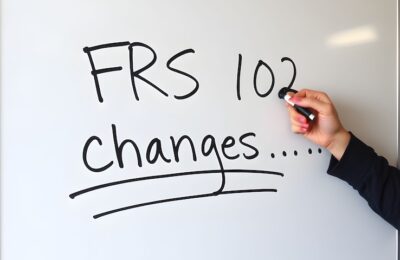For many of us, the term “probate” is something we’ve heard of but maybe don’t fully understand. It’s one of those things you never really find out about until you need to. So, we’ve outlined what a grant of probate is, why you need it and how to make the probate process run as smoothly as possible.
What is a Grant of Probate?
A grant of probate is an application to confirm that the executor of a Will has the legal authority to administer the estate of someone who has died. This includes attending to their affairs and distributing their assets to their heirs. In England, Wales and Northern Ireland this is called a grant of probate; in Scotland it’s a grant of confirmation.
Why do I need a Grant of Probate?
Without a grant of probate, the executor of the Will must write to all of the financial institutions where the deceased held accounts, pensions and shares etc, to find out if they will release money. Every institution will have a different approach but having a grant of probate makes processing of any accounts far easier. And some institutions may not even allow access to funds without a grant of probate.
There are circumstances where a grant of probate isn’t needed, such as when the estate is worth less than £10,000. And it is also important to know that if the deceased owned anything jointly with another person such as a joint bank account, that will pass to them as the surviving co-owner.
What if there is no Will?
If the deceased didn’t have a Will and you are the one responsible for sorting out their financial affairs, then you can apply for a Grant of Representation. It’s a legal document that will allow you to take control of the assets and estate of the person who has died.
How long does a Grant of Probate take?
Once you have applied for the grant of probate, the process will take on average three to six months to complete. But with some complex estates, it can take more than a year.
Paying Inheritance Tax
Inheritance Tax (IHT) is a vital part of probate. Before applying for probate, you should estimate the value of the estate of the person who died and report that in order to find out if you need to pay IHT.
Any IHT due is usually paid over within six months of a person’s death. It’s a one-off payment that can be as much as 40% of a deceased person’s estate over the threshold of £325,000. Remember that the IHT threshold is higher for married couples and there are ways to reduce the amount of IHT due.
Paying over any IHT due promptly will ensure the probate process takes the shortest time possible to complete. And it will avoid any fines from HMRC too.
How can you speed up the probate process?
To make sure there are no delays on your part, there are some things you can do.
- Understandably, it is likely to be a difficult time but try to apply for probate as soon as is practical.
- If you know that you are an executor of a Will, make sure you understand what you will need to do when the person passes away. It can be difficult to plan for but understanding how the estate should be dealt with can make it easier.
- Pay any Inheritance Tax due on time.
- Unless you feel confident completing the probate process yourself, speak to a professional. If you make an error, it can slow down the probate process. Employing a professional would be particularly worthwhile in the case of more complicated estates.
How can I prepare my own estate?
It’s not something we like to spend too much time thinking about but by planning for the future, you are helping your loved ones avoid any unnecessary stress at what will inevitably be a very difficult and emotional time for them.
- Make sure you have a Will and keep it up-to-date.
- Speak to your accountant about ways to limit any IHT and Capital Gains Tax.
- If you own your own business, then planning ahead is even more important. Your accountant will be able to advise you on how best to plan ahead.
About Ian Henman
London lad Ian joined THP in October 2016 to set up and manage THP’s new legal services department.
Starting at the tender age of 19 Ian spent almost 30 years building his career at Natwest/RBS becoming a business client account manager to many local businesses.
Ian was looking for a new challenge and as THP was searching for someone to gain accreditations and spearhead the legal services department, there was a clear synergy.
More posts by Ian Henman











